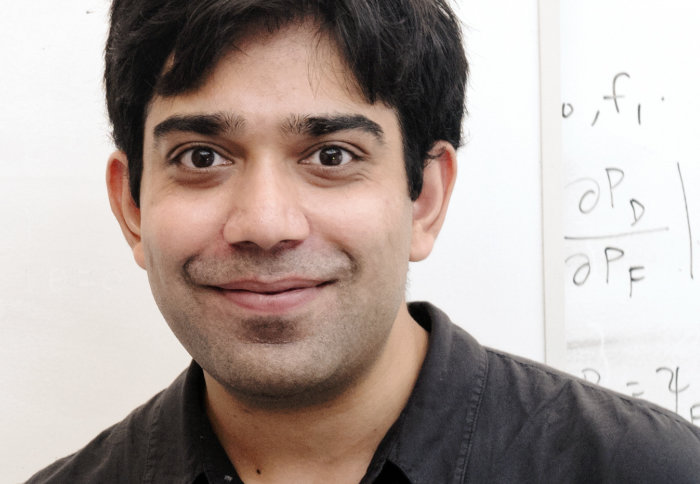Research 'leader of the future' wins prestigious funding award
by Jane Horrell

Dr Ayush Bhandari is one of eight researchers from Imperial who have been awarded Future Leader Fellowships by UK Research and Innovation.
The fellowships were established to support a new generation of rising stars. They provide early career academics with the flexibility and time they need to make progress on pressing global challenges.
The fellowship awards of £1.2m over four years, are funded by UKRI, the national body which brings together the seven Research Councils, Innovate UK and Research England. Researchers who wanted to host a fellowship at Imperial were supported through the awards application process by Imperial’s Postdoc and Fellows Development Centre.
Ayush joined us as Lecturer in the autumn of 2018, after obtaining his doctorate from the Massachusetts Institute of Technology (MIT). He is developing next generation digital sensing and imaging technologies that go beyond conventional barriers.
This BBC video features Ayush and MIT colleagues demonstrating their remarkably inexpensive camera that operates at the speed of light. The camera is based on Time of Flight technology in which an object’s position is calculated by measuring how long it takes a light signal to reflect off its surface and return to a sensor.
You might recognise the phenomenon of the pops and skips of a “clipped” audio signal, or the “saturation” in digital images on your phone camera — when, for instance, an image of the sun in a sky that looks blue to the naked eye shows up on-camera as a sheet of white.
This happens because all digital sensors suffer from limited dynamic range, that is, the maximum recordable range, for example in voltage and intensity, that can be processed. Whenever a physical signal exceeds the maximum threshold, the digital sensor in the camera overloads and this results in clipped measurements.
“Take a look at your environment and you will quickly realise how we are surrounded by sensors such as wifi routers, smart phones, cameras. All these sensors have limitations: how much information they can store; how fast they can capture information; what is the best resolution and dynamic range. My long-standing goal is to catalyse revolutionary methods for data sensing and imaging, so that we can go beyond what is conventionally possible.”
"To do so, I use the co-design philosophy which relies on a carefully optimized capture process yielding computationally encoded measurements from which the information is decoded using recovery algorithms. This is fundamentally different from the traditional approach where hardware and algorithms are treated as decoupled entities.
Applications for this work can be found everywhere, and include medical and bio-imaging, digital communication and even remote sensing.
Ayush’s work is being shaped into a co-authored book to be published by MIT Press. Applied aspects of his research have already led to ten US patent (filed/granted) applications. Earlier this year, Ayush was awarded the August-Wilhelm Scheer Visiting Professorship by the Technical University of Munich.
What excites you most about your research?
The freedom to explore uncharted intellectual landscapes. I also have collaborators from all over the world and with diverse cultural backgrounds, and this enriches me both at a professional and a personal level.
How will the UKRI Fellowship help you develop your research?
I like to take risks, and I am interested in inter-disciplinary scientific challenges — I work on the boundaries of applied mathematics, physics and engineering. The sustained and long-term support from the Fellowship will ensure that I can continue to tread the path of exploration where risk is involved.
The Department sends congratulations to Ayush for this excellent achievement. We look forward to seeing him develop as a leading light in his field.
Article supporters
Article text (excluding photos or graphics) © Imperial College London.
Photos and graphics subject to third party copyright used with permission or © Imperial College London.
Reporter
Jane Horrell
Department of Electrical and Electronic Engineering